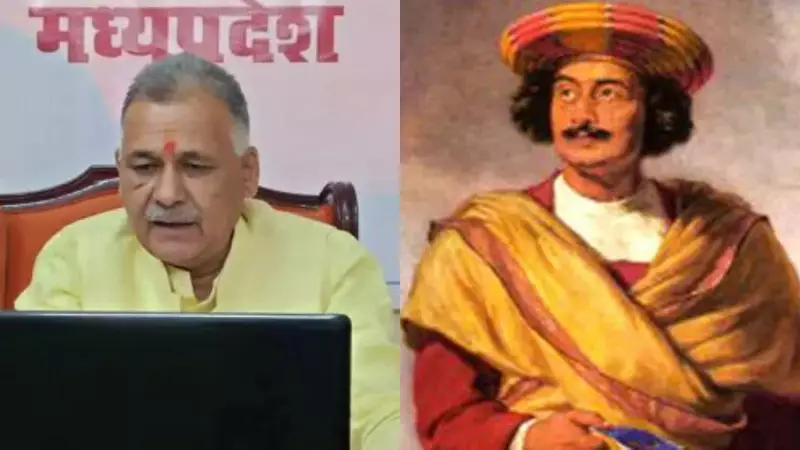
The Trinamool Congress has launched a vigorous online campaign titled 'Bangla Birodhi BJP' (anti-Bengal BJP) following controversial remarks made by Madhya Pradesh Higher Education Minister Inder Singh Parmar about 19th-century social reformer Raja Ram Mohan Roy. The political firestorm erupted after Parmar allegedly described Roy as a 'British agent' and 'fake reformer' during a public event.
The Controversial Remarks and Immediate Fallout
At a public gathering that took place in mid-November 2025, BJP leader Inder Singh Parmar made startling claims about Raja Ram Mohan Roy, one of Bengal's most celebrated historical figures. Parmar asserted that Roy worked to divide Indian society and was 'enslaved' by the British as part of what he described as a 'cycle of religious conversions'.
The remarks immediately triggered strong reactions from political circles, particularly in West Bengal where Raja Ram Mohan Roy is revered as a pioneering social reformer and intellectual giant. The controversy comes at a sensitive political time, with state elections scheduled for 2026.
TMC's Fierce Response and Campaign Launch
The Trinamool Congress wasted no time in capitalizing on the controversy. On Sunday, November 16, 2025, the party's official X handle posted a strong condemnation that set the tone for their counter-offensive. 'BJP's obsession with defaming Bengali stalwarts reveals one thing their Bengal-phobia is real', the post stated emphatically.
The social media message continued with a defiant challenge: 'When you can't match Bengal's intellect, you resort to insulting it. Bengal will answer loud and clear!' The post was tagged with the hashtag #BanglaBirodhiBJP, which quickly gained traction online.
TMC minister Sashi Panja amplified the party's position in her statements to the media. 'Raja Ram Mohan Roy, we worship him... He was a reformer, a true reformer', she asserted. Panja directly challenged the BJP's characterization of Roy, asking 'what does the BJP say? They say that he's a fake reformer.'
Historical Context and Broader Political Implications
TMC spokesperson Aroop Chakraborty connected the current controversy to what he described as a pattern of historical disrespect from the BJP. In a sharp retort, Chakraborty stated, 'Who is saying this? Those who themselves are a Dalal (agent) of the British', turning the accusation back on the BJP.
Chakraborty also invoked Bengal's historical resistance to British rule, declaring that 'The British have been pushed back by the Bengalis, Bengal will make the BJP understand again, in 2026' - a clear reference to the upcoming state elections.
The controversy touches upon sensitive historical narratives and regional pride, making it particularly potent in West Bengal's political landscape. Raja Ram Mohan Roy is widely respected for his contributions to social reform, including his efforts to abolish sati and promote women's rights.
Apology and Damage Control
Facing mounting criticism, Inder Singh Parmar has since apologized for his remarks. The Madhya Pradesh minister claimed that he had 'accidentally misinterpreted' Raja Ram Mohan Roy while speaking about Birsa Munda, a tribal icon.
Parmar described his controversial statement as a 'slip of tongue' and expressed respect for Raja Ram Mohan Roy. However, the BJP's West Bengal unit has maintained silence on the controversy, neither endorsing nor condemning Parmar's remarks as of the latest developments.
The incident has escalated into a significant political confrontation between the two parties, with the TMC positioning itself as the defender of Bengali pride and intellectual heritage against what it characterizes as the BJP's 'Bengal-phobia'.






